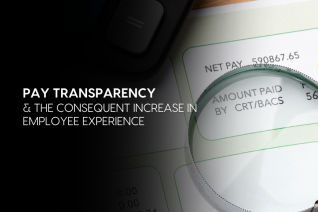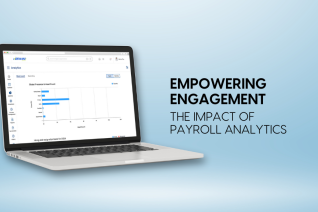Run your business seamlessly with Neeyamo as we help you go beyond borders to manage your international payroll and hire new talent in the Central African Republic.
Overview
Central African Republic is a landlocked country located in the heart of Africa, sharing its borders with Chad to the north, Sudan to the northeast, South Sudan to the east, the Democratic Republic of the Congo to the south, the Republic of the Congo to the southwest, and Cameroon to the west. The country's economy is primarily based on subsistence agriculture, with important crops including cassava, peanuts, maize, sorghum, millet, and sesame. Diamonds and timber are significant exports, contributing to the economy as well.
Neeyamo assists with onboarding and managing employees in the Central African Republic and processing a firm's payroll, compliance, benefits, and more.
Tools And Instances
Facts And Stats
Capital
Bangui
Currency
Central African CFA franc (XAF)
Official Language
French and Sango
Fiscal Year
1 January - 31 December
Date Format
DD/MM/YYYY
Country Calling Code
+236
Other Languages
Various local languages
Time Zone
West Africa Time Zone (UTC+1)
Global Payroll
Overview
Handling payroll for a widespread workforce can pose as a major challenge for any firm. The added complication of compliance can make things worse and drastically effect the time and efforts that can be used in other equally important aspects of an organization's development.
Over the years, Neeyamo has observed these complexities and strived to provide a global payroll solution through a single technology platform, Neeyamo Payroll.
Payroll Taxes
Payroll tax is the percentage amount retained from an employee's salary and paid to the government to invest in the welfare of the general population.
Employee Taxes
Social security contribution is levied on salary. The current rate is 3% for employees.
| Income in XAF | Rate |
| 0 to 378.000 | 0 |
| 378.001 to 1.680.000 | 8% |
| 1.680.001 to 3.360.000 | 15% |
| 3.360.001 to 5.040.000 | 28% |
| Above 5.040.000 | 40% |
Employer Taxes
Social security contribution is levied on salary. The current rate is 19% for employers.
Payroll Cycle
Overview
Undoubtedly, payroll is a critical aspect of any organization. The pay cycle is a notable feature that provides a sense of accountability for an employee to be paid consistently for their work.
Frequency
The frequency cycle in the Central African Republic is Monthly.
13th Month Cycle
The concept of a 13th-month salary is not common in the Central African Republic.
Global Work
Overview
An Employer of Record service provider helps you get rid of the hassle of handling the complexities that come with setting up a new employee in remote locations. They act as legal employers, facilitate salary payments, and handle everything from health insurance, payroll taxes, and employee benefits to comply with local tax laws and regulations.
This allows organizations to focus on collaborating with the employee in the Central African Republic for operational tasks, with the knowledge that they have a cost-effective solution support their global HR and payroll requirements, as they continue their global expansion.
HR Mandates and Practices
Minimum Wage
As of 2024, the minimum wage in the Central African Republic is set at 35,000 CFA francs per month, which translates to approximately 218.75 CFA francs per hour.
Overtime
Employees are entitled to overtime pay for any hours worked that exceed the standard workweek limitations. This means overtime starts after 40 hours (or 48 hours in agriculture) have been completed in a week. There's a legal limit on total working hours, including overtime. This limit is set at 48 hours per week.
Data Retention Policy
The Central African Republic (CAR) currently lacks specific data retention laws.
Hiring and Onboarding Requirements
Hiring
- Local Knowledge: Candidates with local knowledge and experience are often preferred.
- Language Proficiency: Fluency in French and Sango (the national language) is essential.
- Cultural Fit: Understanding and respecting local customs and traditions is crucial.
- Education and Qualifications: While formal education is valued, practical experience and skills are often prioritized.
- Flexibility and Adaptability: Given the challenging business environment, employees who can adapt to changes are highly sought after.
Onboarding
- Employment Contract: A formal agreement outlining the terms of employment, including job responsibilities, salary, benefits, and duration of employment. It should comply with local labor laws.
- Personal Information Form: A document where new employees provide personal details such as their full name, address, contact information, and emergency contacts.
- Identification Documents: Copies of official identification documents like national ID cards or passports are usually required to verify the employee's identity.
- Tax Forms: Forms related to tax withholding and social security contributions. This includes registration for tax purposes and any relevant social security or pension schemes.
- Bank Account Details: Information for salary payments, typically requiring bank account details where the employee’s salary will be deposited.
- Health and Safety Forms: Documents related to health and safety training or acknowledgment of workplace safety procedures.
- Non-Disclosure Agreements (NDAs): If applicable, NDAs or confidentiality agreements to protect company information and intellectual property.
- Code of Conduct and Company Policies: A document outlining the company’s policies, including workplace behavior, dress code, and other organizational rules.
- Benefits Enrollment Forms: Forms to enroll in any company-provided benefits such as health insurance, retirement plans, or other perks.
- Orientation Materials: Documents that provide information about the company’s culture, mission, and organizational structure.
Probation
The probation period is typically three months for most employees. This period allows employers to assess the suitability of new hires for their positions.
Renewal of ProbationThe probation period can be renewed once, extending it for the same duration (an additional three months). This extension may be applicable in cases where the employer feels further evaluation is necessary.
Termination During ProbationDuring the probation period, no notice period is required for termination. This means that either the employer or the employee can end the employment relationship without prior notice.
Employment ContractThe terms of the probation period, including its duration and conditions, should be clearly outlined in the employment contract. This ensures that both parties understand their rights and obligations during this initial phase of employment.
Legal ComplianceEmployers must comply with the provisions of the Labor Code when implementing probation periods, ensuring that all practices align with local labor laws.
Leave
Public Holidays
- January 1 - New Year
- March 1 - Ramadan Start (Tentative Date)
- March 20 - March Equinox
- March 29 - Commemoration of Boganda
- March 31 - Eid al-Fitr (Tentative Date)
- April 21 - Easter Monday
- May 1 - Labour Day
- May 29 - Ascension Day
- June 7 - Eid al-Adha (Tentative Date)
- June 9 - Whit Monday
- June 21 - June Solstice
- June 30 - National Prayer Day
- August 13 - Independence Day
- August 15 - Assumption of Mary
- September 22 - September Equinox
- November 1 - All Saints’ Day
- December 1 - Republic Day
- December 21 - December Solstice
- December 25 - Christmas Day
Annual Leave
Employees are entitled to 24 days of paid annual leave after completing one year of service. This leave can be taken in a manner agreed upon between the employer and the employee.
Sick Leave
Employees are entitled to up to 3 months of sick leave. The specific conditions for sick leave, including the need for medical certification, may apply.
Maternity Leave
Maternity leave is set at 14 weeks, which includes six weeks before and eight weeks after childbirth. This leave can be extended by an additional three weeks in cases of illness related to childbirth, as certified by a doctor.
Paternity Leave
There is no statutory provision for paternity leave in the Central African Republic.
Public Holidays
In addition to the statutory leaves, employees are entitled to paid time off on public holidays, which include several national and religious observances.
Termination
Notice Period
The required notice period varies based on the employee's seniority:
- Less than six months of service: 8 days' notice
- Six months to one year of service: 1 month's notice
- More than one year of service: 3 months' notice
- Probationary period: No notice required
Severance Pay
Unlike many countries, there's no statutory requirement for severance pay in the Central African Republic. However, it can be negotiated and included in the employment contract.
Visa
Overview
To work in the Central African Republic (CAR), foreign nationals must obtain a work visa, which is typically associated with a specific employer.
Types of work visas:
- Short-Stay Work Visa: This visa allows foreign nationals to work in the CAR for a limited duration, typically up to three months.
- Long-Stay Work Visa: For those needing to stay longer, a long-stay visa can be obtained, allowing residency for up to one year.
Application Process:
- Employer Sponsorship: A work visa requires sponsorship from a local employer. The employer must apply for the work permit on behalf of the employee.
- Required Documents: The application typically requires:
- A valid passport with at least six months' validity.
- A completed visa application form.
- Passport-sized photographs.
- Proof of health insurance.
- A confirmed flight itinerary.
- Proof of accommodation.
- A letter of invitation from the employer.
- A yellow fever vaccination certificate.
- A criminal record check.
- A bank statement may also be required.
- Submission: Applications must be submitted to the nearest Central African Republic embassy or consulate, or through the employer if they are using an Employer of Record service.
-
Processing Time: The processing time for work visas can vary, and it is advisable to apply well in advance of the intended travel date, as it may take several weeks.
Employee Background Checks
Legal and Background Checks
In the Central African Republic (CAR), legal background checks are an important part of various processes, including employment and legal compliance.
- Criminal Record Check: This is often done through the national police or judicial authorities. Employers or institutions may need to request this through a formal application process.
- Verification of Education and Professional Qualifications: This can involve contacting educational institutions and previous employers to verify claims made by the candidate.
- References and Employment History: Checking references and previous employment can be done by contacting previous employers and references provided by the candidate.
- Regulations and Privacy Laws: CAR has specific regulations governing the use and protection of personal data. Background checks must comply with these privacy laws to ensure the protection of individuals' personal information.
- Local Customs and Procedures: It's important to be aware of any local customs or procedures that may affect how background checks are conducted in CAR.
Last updated on August 6, 2024.
If you have any queries or suggestions, reach out to us at irene.jones@neeyamo.com
Have Queries? Get In Touch With Us
Get in touch with one of our experts and take a quick demo of our services









